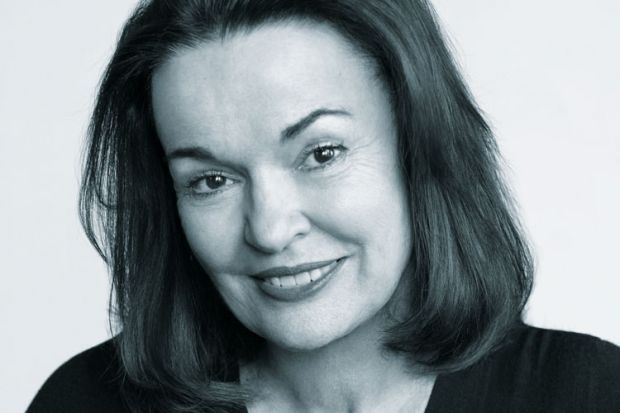It doesn’t matter where you came from, it is where you are now that counts. I should have listened to this advice earlier. I would not have worried so much about not having a traditional education
Dame Carol Robinson is the first female professor of chemistry at the University of Oxford and was also the first at the University of Cambridge. She pioneered the use of mass spectrometry as an analytical tool and conducted groundbreaking research into the 3D structure of proteins. This week she was named the L’Oréal-Unesco For Women in Science European Laureate for 2015.
Where and when were you born?
I was born in South London in the 1950s, the middle child, with two brothers. I moved to Folkestone for my secondary school education.
How has this shaped you?
I passed my 11-plus and my parents were keen for me to go to a technical school where I would learn shorthand typing, domestic science and needlework. Because nothing academic was expected of me, I was free to do my own thing. I remember being fascinated by chemistry at school. I liked the symmetry and logic that dictated chemical reactions. When I decided to become a technician in the analytical chemistry department at Pfizer, my parents thought this was quite a good opportunity. They didn’t really know what was involved any more than I did.
What were your reasons for leaving school at 16 and what later drew you into higher education?
It was quite unusual at my school for girls to go to university, so it didn’t really occur to me to try. I realised when at Pfizer that I was as capable as the new graduates but not on the same pay scale or given the same respect. It was at that stage, and after seven years of part-time study, that I decided to do a PhD.
Your accolades are numerous. Where does the L’Oréal award sit among them?
I am particularly proud of this one because I like what the L’Oréal Foundation has set out to do. Highlighting women in science in this way is a great idea. I would have appreciated more [female] role models when I was growing up – it gives young women something to aspire to.
What are the biggest challenges facing women in science?
I like to think that the barriers are reducing all the time, but unfortunately the evidence doesn’t support this. There are still relatively few women who remain in science, despite a good take-up at the undergraduate level. The work-life balance plays a major role. We need to stress the positives of careers in research: to work on something that becomes your hobby, flexible hours, international friendships, mentoring students and postdoctoral researchers – the list is long.
You’ve always taken decisive action when it comes to your professional/personal life. Is this something you would recommend for women who feel they must make either professional or personal sacrifices?
I am often asked my advice about motherhood and my answer is always the same: to do what you feel is right for you. I took eight years out and have no regrets. Equally, I have seen women cope extremely well with balancing motherhood and academia. The choice is a personal one.
What would you say to school students who are debating whether to enter the world of work or to continue with A levels and tertiary education?
If I had my time again, I think I would have stayed in tertiary education. Having watched our children go through this route, I can see how they have benefited enormously, not just from the academic work, but also from the social interactions and independence they gained. But this route is not for everyone; practical skills are very important in all aspects of life.
Tell us about someone you’ve always admired.
My father was a great tennis player and would have liked me to be one also. Sadly he died soon after my PhD. I remember him saying two things to me: that he would prefer a “Permanently Healthy Daughter” and that life was not a rehearsal. I have tried to adopt this motto and enjoy life.
What keeps you awake at night?
Red wine and cheese. When I was younger it was my children or my work. I would try to think of great titles for papers while I lay in bed. Nowadays I sleep quite soundly.
What advice would you give to your younger self?
The most important advice I got from my mentor was that it doesn’t matter where you came from, it is where you are now that counts. I should have listened to this earlier. I would not have worried so much about not having a traditional education.
If you were universities minister for a day, what policy would you introduce?
I would try to ensure that universities were properly funded. There are moves to put research into institutes and to leave universities to focus on teaching. I think this would be a big mistake. Many of the great innovations in science were discovered in universities.

